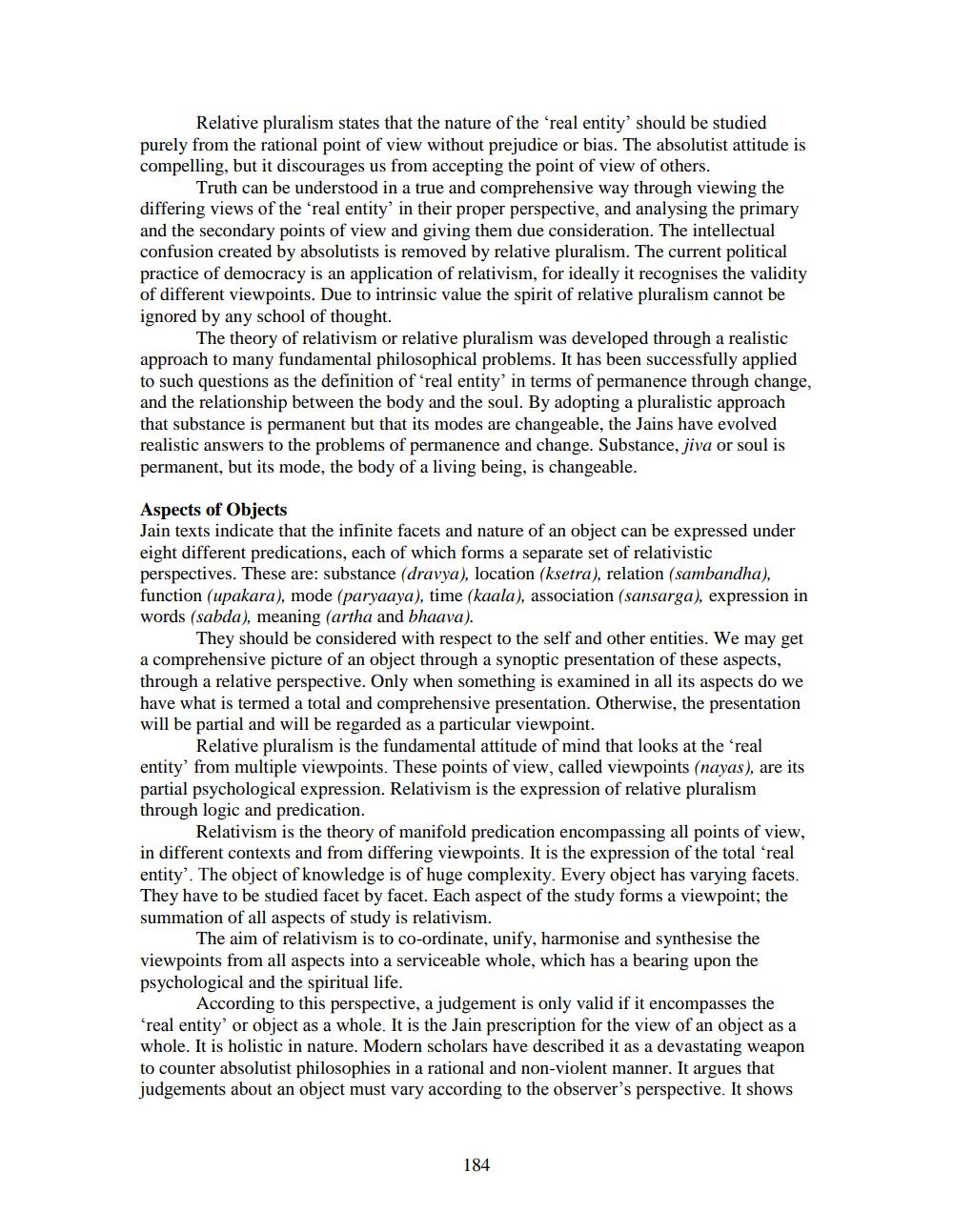________________
Relative pluralism states that the nature of the 'real entity' should be studied purely from the rational point of view without prejudice or bias. The absolutist attitude is compelling, but it discourages us from accepting the point of view of others.
Truth can be understood in a true and comprehensive way through viewing the differing views of the 'real entity' in their proper perspective, and analysing the primary and the secondary points of view and giving them due consideration. The intellectual confusion created by absolutists is removed by relative pluralism. The current political practice of democracy is an application of relativism, for ideally it recognises the validity of different viewpoints. Due to intrinsic value the spirit of relative pluralism cannot be ignored by any school of thought.
The theory of relativism or relative pluralism was developed through a realistic approach to many fundamental philosophical problems. It has been successfully applied to such questions as the definition of 'real entity' in terms of permanence through change, and the relationship between the body and the soul. By adopting a pluralistic approach that substance is permanent but that its modes are changeable, the Jains have evolved realistic answers to the problems of permanence and change. Substance, jiva or soul is permanent, but its mode, the body of a living being, is changeable.
Aspects of Objects Jain texts indicate that the infinite facets and nature of an object can be expressed under eight different predications, each of which forms a separate set of relativistic perspectives. These are: substance (dravya), location (ksetra), relation (sambandha), function (upakara), mode (paryaaya), time (kaala), association (sansarga), expression in words (sabda), meaning (artha and bhaava).
They should be considered with respect to the self and other entities. We may get a comprehensive picture of an object through a synoptic presentation of these aspects, through a relative perspective. Only when something is examined in all its aspects do we have what is termed a total and comprehensive presentation. Otherwise, the presentation will be partial and will be regarded as a particular viewpoint.
Relative pluralism is the fundamental attitude of mind that looks at the 'real entity' from multiple viewpoints. These points of view, called viewpoints (nayas), are its partial psychological expression. Relativism is the expression of relative pluralism through logic and predication.
Relativism is the theory of manifold predication encompassing all points of view, in different contexts and from differing viewpoints. It is the expression of the total 'real entity'. The object of knowledge is of huge complexity. Every object has varying facets. They have to be studied facet by facet. Each aspect of the study forms a viewpoint; the summation of all aspects of study is relativism.
The aim of relativism is to co-ordinate, unify, harmonise and synthesise the viewpoints from all aspects into a serviceable whole, which has a bearing upon the psychological and the spiritual life.
According to this perspective, a judgement is only valid if it encompasses the 'real entity' or object as a whole. It is the Jain prescription for the view of an object as a whole. It is holistic in nature. Modern scholars have described it as a devastating weapon to counter absolutist philosophies in a rational and non-violent manner. It argues that judgements about an object must vary according to the observer's perspective. It shows
184




